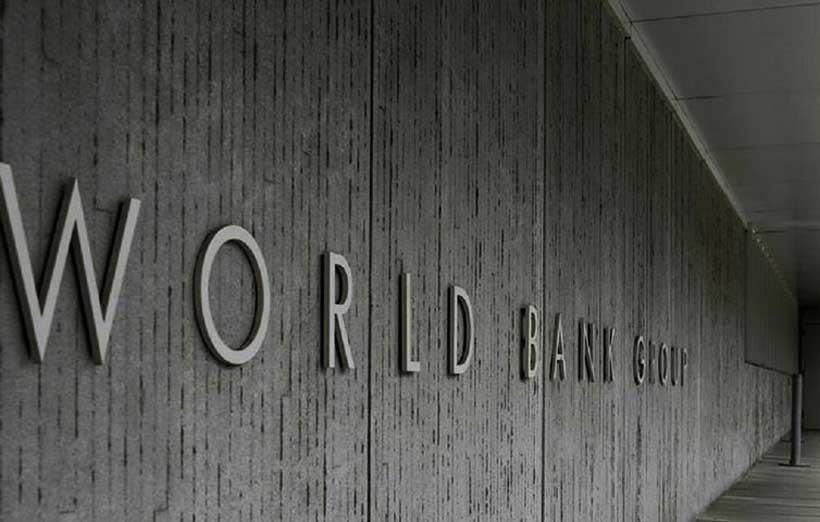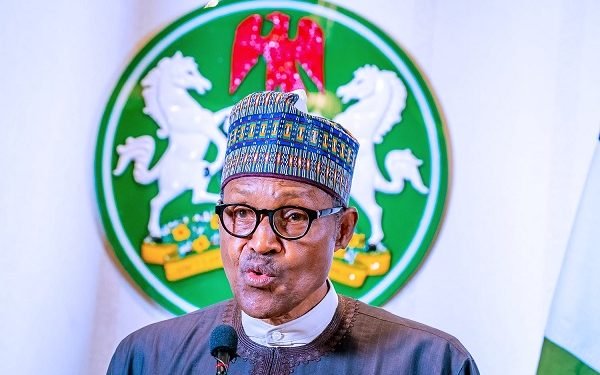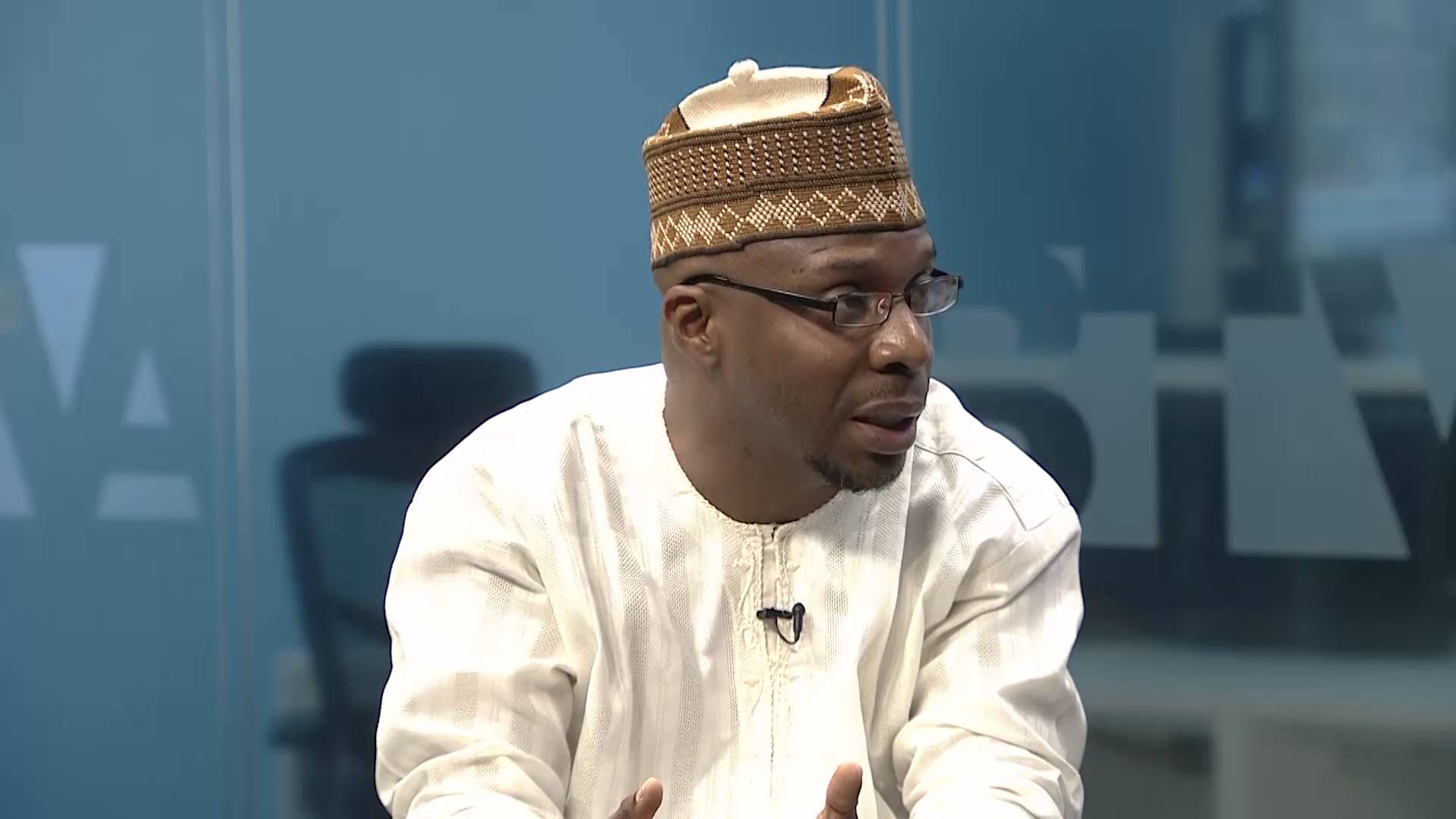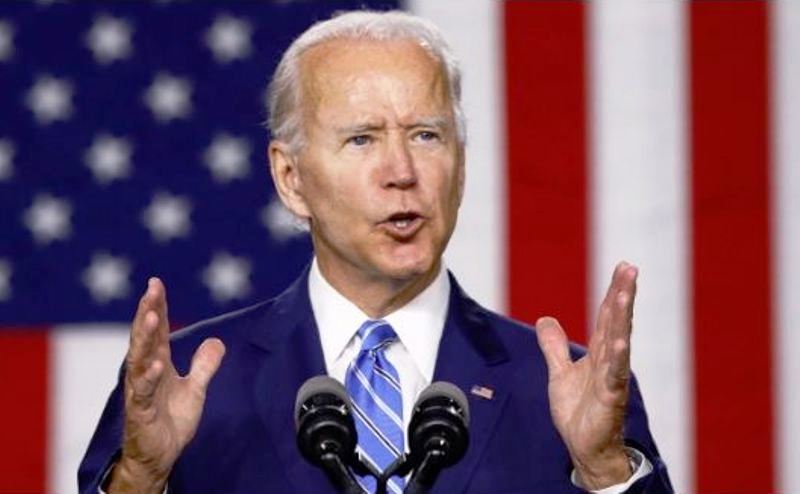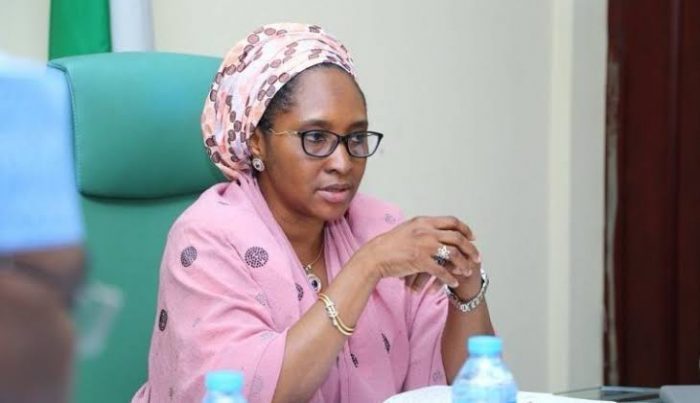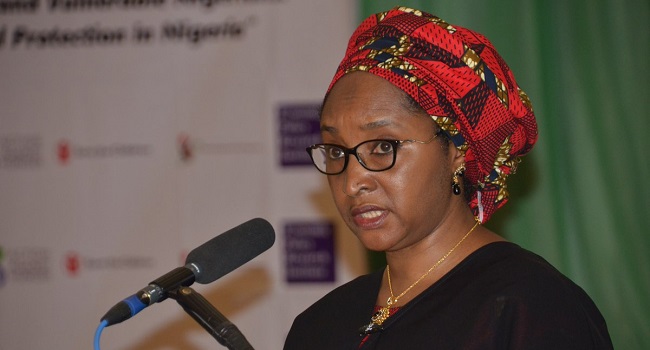By Dele Sobowale
By now every Nigerian knows the truth. Nigeria is in a recession. The dreadful result was summarised for us this way in PUNCH, November 22, 2020.
“The NBS, in its Gross Domestic Product report for Q3, said the GDP, the broad measure of economic prosperity, fell by 3.62 per cent in the three months till September.
For the first time in more than three years, the Nigerian economy shrank in Q2 by 6.10 per cent..”
For good measure, the World Bank added two bits of information to make the situation in which Nigerians find themselves even more depressing. First, the bank pointed out that this is the worst recession in 36 years.
Second, the global bank followed that up by telling Nigerians that per capita income this year and early next year could fall to 40-year low. For a nation the acknowledged poverty capital of the world things cannot possibly be worse for us. It not only means that we will not soon relinquish the title of poverty capital, we only have our own dismal record to beat. And, all these could impliedly occur in the near future – as early as next year in fact.
A RECESSION FORETOLD IN MARCH 2020.
“For every folly of their [rulers], Nigerians feel the lash.”
Horace, 65-8 BC, VBQ p 61.
Grim as all these revelations might appear to Nigerians, they represent a tragedy already foretold, as usual by VANGUARD. While the rest of Nigeria was still wondering what would be the repercussions of COVID-19 on the Nigerian economy, we already made the forecast of a recession. As usual, please read what we published in March.
COVID-19 HAS CLOBBERED BUDGET 2020 INTO A COMA.
“Coronavirus: FG Considers Reviewing 2020 Budget.
“DAILY INDEPENDENT, March 5, 2020, p 1.
“55 Nigerian oil cargo unsold as demand tumbles.”
PUNCH, March 6, 2020, p 23.
Shakespeare, 1564-1616, must have had a situation like the one in which Nigeria now finds itself before pronouncing that: “All things do help the unhappy man to fall.” (VANGUARD BOOK OF QUOTATIONS, VBQ p257). President Buhari during one of his many trips abroad – on private visit, of course – once described himself as the most unhappy leader. He has a right to claim that title. Nigeria under him became the poverty capital of the world and that is a title that will not be relinquished soon. On four indices included in the Misery Index, MI — children out of school, maternal death, infant mortality and per capita income – Nigeria is ranked first in all of them.
Nigeria is also home to two of the world’s five worst terrorist groups. Bioko Haram and Fulani Herdsmen have ensured that Nigeria is not only represented but has managed to record more casualties of terrorism than some of the countries now officially at war.
……, although it is the poorest country among the Organisation of Petroleum Exporting Countries, OPEC, and it is only the eight largest producer, more crude oil is stolen in Nigeria than any other country. Thus, the Federal Government of a nation which needs every dollar it can get from cured oil stands and looks on while a few selfish but powerful crooks consign the rest of Nigeria to prolonged poverty and endless destitution. None of the big oil thieves living in Abuja and Lekki/Victoria Island has been apprehended and prosecuted. Instead of protecting our own most important source of funds, we are contented to make requests for $22 billion loan package – which a rubber stamp Senate readily approves. Yet, nobody in the Senate seriously believes that the jumbo loan will solve our economic problems. Most likely, most of it will be embezzled, The Buhari administration, by the time it leaves office in 2023 will leave the next generation with more debt to repay than any other government in history.
Those observations are meant to provide readers some background to what will follow in this article because Nigerians need to understand the disaster that awaits us on account of COVID – 19 and our near total dependence on oil. Perhaps the place to start is what was predicted last year when the 2020 Budget was presented to the puppet National Assembly, NASS. Having successfully planted his stooges in the two chambers as Senate President and Speaker, Buhari was certain that the budget would be passed as it was. He was right. NASS dutifully passed the 2020. Unfortunately for Buhari, the NASS and Nigeria, the demand for crude was less than expected right from January 1, 2020. It remained low through out the second month of the year and as we move into March, we discover that Coronavirus – 19, COVID-19, has rendered Budget 2020 totally untenable.
BUDGET OF DECEIT AND SELF-DELUSION
“The most obstinate illusions are ultimately broken by facts.”
Trevor Roper. VANGUARD BOOK OF QUOTATIONS, VBQ p 100.
“Budget of Continuity was based on a benchmark oil price of $60 per barrel, oil production of 2.3mbpd…government projected a deficit of N1.91tn…The revenue performance is only 58 per cent of the 2019 budget’s target due to the underperformance of both oil and non-oil revenue sources…Specifically oil revenues were below target by 49 per cent as at June 2019.”
President Buhari, Budget 2020 presentation to the NASS, October 8, 2019.”
That was President Buhari’s Budget summarised. Below was my own reaction to it at the time. I never expected the FG to listen to warnings from others.
STARTING ON THE WRONG FOOT; STAYING ON THE WRONG TRACK
“Morning shows the day” according to an old adage.
The disaster of the 2020 Budget actually had its origins in 2015. The first three appointments every modern Head of Government makes in today’s global village are: the Ministers for Defence, Finance and External Affairs. Those are the people other countries appraise most critically. And, the appointments are made very quickly after elections are over. Bearing in mind that “A week is a long time in politics” (Harold Wilson, British Prime Minister 1970s). Buhari waiting for five months to make those key appointments had already sent a signal to the global community; and not a good one. To then turn around and hand the economy to people totally unknown in global financial institutions for the five months sent another signal; a worse one. When he finally made the selection of Minister of Finance, it was to please a political loyalist instead of picking some one with network in the international financial community. Mrs Adeosun might be a good accountant; but, she is not and cannot be an excellent Finance Minister. The results showed very quickly. A recession followed in 2016.”
The rest of the analysis of the 2020 Budget went on to predict that it will never be implemented as it is. That was before COVID-19 gate-crashed into our lives and is now going to cause a lot of havoc to the budget of every country on the planet. The first signal of the problems ahead is the turmoil in global oil trade. The Organisation of Petroleum Exporting Countries, OPEC, is now in disarray. Saudi Arabia, the largest exporter, after failing to get Russia, a non-member to agree to a cut in production and supplies, had unilaterally reduced crude price and is now set to increase output. Those steps spell economic doom for countries like Nigeria which are more heavily dependent on oil. From the evidence available at the moment, the average price of crude oil on the global market is unlikely to exceed $50 per barrel for the next three months unless an emergency meeting of OPEC is held to establish anew quota and production level acceptable to all members.
Even then, any agreement by OPEC members will not be binding on non-members – who now control a larger percentage of global oil output than OPEC. The cartel has lost the clout which in the past made it possible to dictate global oil prices. While there are several uncertainties, there is one certainty, which cannot be ignored. COVID-19 has devastated Nigeria’s 2020 budget. It was not realistic before COVID-19; it is totally in shreds now. It requires no high intelligence to realise that a budget review is urgently needed.
BUHARI APPOINTS BUDGET REVIEW ADVISERS.
For once President Buhari did not waste time in approving a budget review committee of advisers. That is a step in the right direction. Other steps must necessarily follow – and quickly too because time is one of the variables they must bring into consideration. In that connection the most important matters to be decided include the following:
Bench mark crude price to adopt in the recommendations for the budget review.
Time to start operating the new budget.
The impact on the Federal and State Governments.
How to handle the inevitable recession.
In the second part of this series, I will elaborate on the four issues listed above. But permit me to be the bearer of bad news. ANOTHER RECESSION IS LOOMING ON THE NIGERIAN ECONOMIC ENVIRONMENT.”
That was published in the second week of March – long before the FG started to address its mind to the possibility of a recession.
I would have been shocked to death if the Buhari administration, had read the article and taken it seriously as a warning against imminent catastrophe. Predictably, they did not. Still, at the time the article was released, we were still under the impression that we had a serious government which would weigh all the evidence provided and act proactively. Though inevitable, if the Federal Government had reached out for more information from us, it would have been able to reduce the decline in GDP growth considerably. Second quarter might not have slumped to -6.10 per cent and Q3 not as bad as -3.62.
Now, Nigerians are getting set to feel the lashes of incompetence and gross dereliction of duty by the government they elected. It will be brutal.
HOW WE GOT HERE
“Be careful what you pray for; you might just get it and regret it.” Irish advice.
Right after the time the All Progressives Congress, APC, was formed, the political party proclaimed CHANGE as it new mantra. Nigerians, without asking for the specific meanings of the promises implied fell for the slogan. On Election Day 2015, the country’s voters opted for the change. The transition from slogan to reality has since proved to be an economic nightmare for all concerned.
The President-elect turned out to be totally different from all the newly-elected Presidents, worldwide, before and after him. American President-elect Joe Biden, will not resume until January 20, 2021. Today, just three weeks after he won the US election, he has nominated the most important members of his cabinet – especially the Treasury Secretary. Macron of France and Prime Minister Mordi of India were even faster. They announced their cabinets within three days after being declared winner. That is the way modern Presidents operate in the new millennium.
Nigeria’s change agent, President Buhari was different. He not only wasted all the time between the declaration of results and inauguration on May 29, 2015, by not selecting his cabinet, he kept the nation and the global community waiting for five months until October 2015 to present the lowest quality cabinet Nigeria has ever had since his equally low quality cabinet as Military Head of State in 1984-5. That 1984-5 cabinet also got Nigeria into recession in 1984; and was on course to repeat it in 1985; just as his cabinets for 2015-2019 and 2019-2020 have provided an encore by getting us into two recessions.
That change from modern to slow and ancient in a world where national fortunes change within hours was the beginning of the series of administrative blunders which would have serious economic consequences for Nigeria.
When the cabinet list came, it contained 44 Federal Ministers. Our readers are requested to follow closely the number of people on Biden’s US cabinet. The number will not exceed fifteen. Nigerians should be asking “if the world’s richest nation, bigger than Nigeria in all respects and with far greater global responsibilities, can be governed with 15 Ministers, what is Nigeria, under Buhari doing with 44?” And, are we getting value for the huge expenses involved in maintaining a Minister in office? Most Nigerians will readily agree we are not.
Granted, Buhari met bloated cabinets as the norm. But, would not positive change have dictated he reduced the number significantly? Even if the government had insisted on obeying the Nigerian constitution which calls for appointment of a Minister in each state, couldn’t an imaginative President have found a way round it? For instance, he had ill-advisedly kept the Ministry of Petroleum for himself. By so doing, Katsina State is already represented on the cabinet. Why make other appointments from Katsina? For four years, Vice President Osinbajo was in charge of the Social Investment Programme. Why not put him in charge of the Ministry for Humanitarian Services and dispense with another Minister from Ogun State?
There is no need to list seriatim all the top level positions which could have been elevated to cabinet rank and we could have less than 30 Ministers. The cardinal reasons we have 44 Ministers on government’s payroll are lack of imagination and a culture of waste which Buhari brought into government in 2015. The results are startling and frightening at the same time. This government, if things continue like this, will destroy us before it departs in 2023. Take a look at the graph below.
Jonathan’s administration, despite its enormous faults, at least left us with an economy which in 2014 grew faster, 4.8 per cent, than the projected population at 3 per cent per annum. Five months of Jonathan’s administration provided the economic stimulus which kept GDP growth slightly ahead of population increase in 2015. That has been the last time the economy grew faster than population. Then CHANGE took over and we are now being steadily but inexorably ruined as a nation. Whoever took over from Buhari will inherit a total wreck because this government cannot alter the trajectory of the nation’s economic development on its own. And, they refuse to seek help.
Since 2016, low annual growth had brought with them all the maladies associated with economies in distress – rising unemployment, crimes, suicides, malnutrition, infant mortality and deepening poverty. The recession of 2016 marked the beginning of a CHANGE in the fortunes of Nigeria’s economy. Historians of the future will remember this as our darkest years – with no light at the end of the tunnel. COVID-19 merely accelerated and intensified a process which would have resulted in protracted annual low GDP growth followed by recession which would wipe off all the gains made in thirty-five to forty previous years. In 1980, a secondary school teacher could afford to replace an old car with a brand new (“tear rubber) one. Today, a Permanent Secretary must embezzle huge funds to procure a ten year old jalopy. That is CHANGE, for which we voted. We will all live to regret it.
WHERE WE STAND NOW.
“Hell hath no limits;, nor is it circumscribed in one self place, for where we are is hell…’ Christopher Marlowe, 1564-1594, VBQ p 89.
Food insecurity and famine now assured.
For Nigerians living today, the closest thing to hell is here. For millions of our people, especially rural subsistence farmers, hell is definitely here. Hell is here, not only because COVID-19 might trigger another lockdown, but because the criminals – herdsmen, kidnappers, cattle rustlers and bandits – which the Federal Government handled with kid gloves, for ethnic and religious reasons, have now shut down a significant percentage of Nigeria’s farmland.
of our annual food production. Today, even two battalions of soldiers cannot guarantee the safety of farmers and their harvests in Borno State where the Governor had escaped two assassination attempts. In Zamfara and Katsina states, the Governors openly announce their negotiations with bandits in order for farmers to be allowed to work in peace. Invariably, the armed hoodlums break their promises and attack farmers all the same. The recent kidnap of several senior police officers, on their way to Gusau, at the border of Katsina and Zamfara states, has revealed to Nigerians what ordinary people suffer on those routes.
The atrocities committed daily on the Abuja-Suleija-Kaduna highway only tells some of the story of food high-jacking by bandits in Kaduna and Niger States. Going to farm in many parts of the North has become a suicide mission; none but the bravest and most desperate now attempt it anymore.
Chief Olu Falae, former Secretary to the Federal Government, former Minister of Finance serves proxy for all farmers in the South besieged by Fulani herdsmen covered with immunity from the top by the Life Patron of the Miyetti Allah Cattle Breeders Association of Nigeria, MACBAN. When MACBAN mebers first started invading farms, destroying crops, killing and kidnapping people, the Federal Government not only turned a blindeye to the crimes. The FG actually admonished the victims for not welcoming strangers in their midst. It was a colossal lie of course. Herdsmen had been visiting Chief Falae’s part of the South from time immemorial without creating havoc. The CHANGE came in 2015 when the hitherto docile herdsmen openly dropped their shepherd’s staffs and picked up AK-47. Chief Falae was kidnapped and ransom was paid and nobody was apprehended for it. A few days before I started to write this special report, herdsmen devastated parts of Chief Falae’s farm once again. If Chief had depended exclusively on farming for his livelihood herdsmen would have forced him to stop farming as hundreds of thousands had done in the South.
When the FG was shielding criminal hersmen, it never occurred to anybody in Aso Rock that widespread famine would result. Large scale famine is now a reality with which the government must now deal. It will remain with us for a while because it is easier to destroy than to build. Millions of Nigerians have been forced to leave farms they have taken years to cultivate and turn into food machines for all of us. Short-sightedness at the top of government was certainly a CHANGE – again, perhaps not what we expected in 2015.
Feathers fly in Poultry Sector
“Feed scarcity: Poultry investors divest, sell off birds.” PUNCH, November 25, 2020 P 18.
When herdsmen were allowed to invade maize farms with impunity, bandits seize harvests, kidnappers carry off farmers on the way to or from farm – all without response by security agents — it requires very little intelligence to realise that food scarcity would be the ultimate outcome. Top officials of the FG attempted to make up the difference by issuing preferential maize import licence to their kinsmen. It was a futile effort because the supply still fell far short of demand. At any rate, resorting to imports to fill the gap fails to address the fact that we have suffered a reversal in our march towards maize self-sufficiency. Henceforth, we will continue to import increasing quantities of grain for poultry feed. Without that the sector will continue its decline.
Boomerang on Cattle
“Life sometimes does not move in straight lines; it is more like a boomerang.”
Members of MACBAN and their sponsors who might be operating under the illusion that they suffer nothing from their atrocities are in for a shock. The devastation of farms and the impoverishment of millions of farmers has contributed in large measure to the current recession. As aggregate personal income has plummeted with the recession, the demand for meat has also dropped sharply. Shortly after receiving call from the Sunday Editor to write this article, Head Butchers in seven Lagos markets were contacted to ask about demand for beef, goat and ram meats. The result was startling. On the average, there has been about 25 per cent drop in cows, goats and rams slaughtered and sold. A stop at the cattle market – Kara – revealed that there is a strong correlation between what the butchers reported and the reduction in cattle sold.
Lagos cattle dealers are now sending back cattle. The tragedy has come full circle.
Unfortunately, reduced demand is not the only problem facing herdsmen. Some of the cattle rustlers carrying off their animals were once farmers whose farms were devastated by herdsmen. Information reaching us indicates that some displaced farmers are now imposing a sort of rural jungle justice – herdsmen destroy farms; farmers seize their cattle in retaliation. Paradoxically, the cattle rustlers have discovered that it is more profitable to rustle cattle than to farm. Few of them will return to farming until governments find a way to restore security to rural areas.
Agriculture, which was always the first sector to lead economic recovery after a recession, might not play that role now. The sector has been devastated as never before. Consequently, food prices will now continue to rise until further notice.
We are in deep trouble because we have ignored one of the abounding lessons of history. “Burn down your cities and leave your farms; and your cities will spring up again as if by magic. But destroy your farms and the grass will grow in the streets of every city in the country.” (William J Bryan, 1860-1925).
We have almost destroyed our farms.
Manufacturing
“Consumption is the sole purpose of production.”
This is an axiom in economics which pertains more to manufacturing than any other sector. Despite its importance, it will be touched only briefly in this write up. The situation here is not different from that in agriculture. The present is precarious; the future scary. Warehouses are full of finished products – unsold; and selling slowly. The demand for manufactured goods naturally lags behind request for food. With most Nigerians struggling to feed; demand manufactured goods have been very weak and will probably remain so for a while.
Hospitality/Entertainment
This sector was simply wiped out during the lockdown. Many of the investors might never recover. And just as some people were looking towards the Yuletide to at least re-open shop, another lockdown is threatened. Millions of Nigerians have lost their jobs from the first lockdown. Another one will dash all hopes of getting re-engaged any time soon.
Remittances from Nigerians abroad
Close to twelve per cent of foreign exchange coming into Nigeria is from legal and illegal remittances. The foreign exchange coming through that source has helped to moderate domestic exchange rates. Global COVID-19 and universal lockdown had dealt a mortal blow to remittances. Nigerians abroad who were just barely surviving had little left to send home.
Round two of global lockdown means that Nigerian recipients of money from abroad are in for a tough time in the early months of 2021 at least.
IMMEDIATE FUTURE IS BLEAK.
“There are no desperate situations; only desperate men.
Joseph Goebbels, 1897-1945, VBQ p 38.
Worldwide government officials are desperate as this year’s global recession appears likely to continue till at least the first half of next year. Aggregate demand for crude will remain low; so will the average price. Nigeria lacks any other exportable commodity which will provide the revenue we need to achieve the targets set out in the 2021 budget – which is already demolished even before the year starts.
Try as the Central Bank might, it is going to be difficult to keep exchange rates from deteriorating in 2021. Galloping inflation will follow and a greater percentage of the national revenue will go into debt-servicing.
President Buhari, when presenting the 2021 budget to the National Assembly, NASS, repeated his administration’s determination to lift 100 million Nigerians out of poverty in ten years. It was illusionary at best; and a cruel jest at worst. Nigerians can safely write off 2020 and 2021 as years when that Buhari miracle will occur. Indeed, by December 31, 2021, at least nine million more of our Fellow Nigerians would have dived below the poverty line – many for life.
